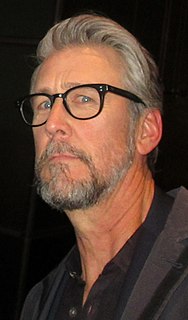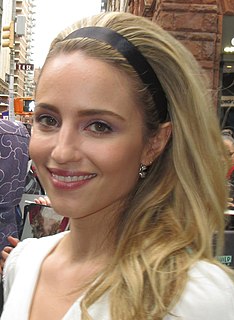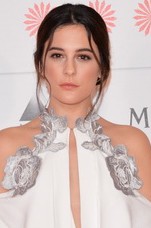A Quote by Werner Herzog
Of course, you do not do any research: you have to go there and do your film. It's not that I would travel there before without a camera and spend half a year on one of those volcanoes and then come back with a camera. You have to have some sort of a clear mindset.
Related Quotes
I actually think film and TV are sort of the same thing now. To me they're all motion pictures. There's a camera, a script, other actors and a director. Doing a sitcom is a little different. It's kind of a hybrid, half movie, half play, presented in a proscenium fashion - the camera's on one side of the line, the set on the other, the audience sitting behind the cameras.
The difference between an amateur and a professional photographer is that the amateur thinks the camera does the work. And they treat the camera with a certain amount of reverence. It is all about the kind of lens you choose, the kind of film stock you use… exactly the sort of perfection of the camera. Whereas, the professional the real professional – treats the camera with unutterable disdain. They pick up the camera and sling it aside. Because they know it’s the eye and the brain that count, not the mechanism that gets between them and the subject that counts.
Zooming in, zooming out. I was shocked. I said, "Let's erase this right now, put the camera behind the stage and I'll do the performance just for the camera." He set up everything and I told him to go outside and smoke a cigarette. Come back when I finish. Don't touch the camera. This was the way how I've done most everything after that.
If I'm traveling, I'll take a film camera and a digital camera because sometimes there are moments where, if you've lost it, or if coming back and it accidentally goes through the X-ray machine and it gets overexposed, you might have had a really important moment to you and you would be really upset that you didn't have a back-up.
The camera course was a bit crap. But when I was in drama school, I wasn't interested. I wanted to be a stage actress. I was not interested in learning camera craft. But then you throw yourself in the deep end when you do get a job in front of the camera because you have absolutely no idea what you're doing, and it is a skill.
How are these people deserving huge payouts for losing weight when they should have done it without the camera or without a team helping them? Then, six months later you go back and find out where they are, and they're in a worse state than they were in before they joined the f - ing show. Then they blame the producer.





































